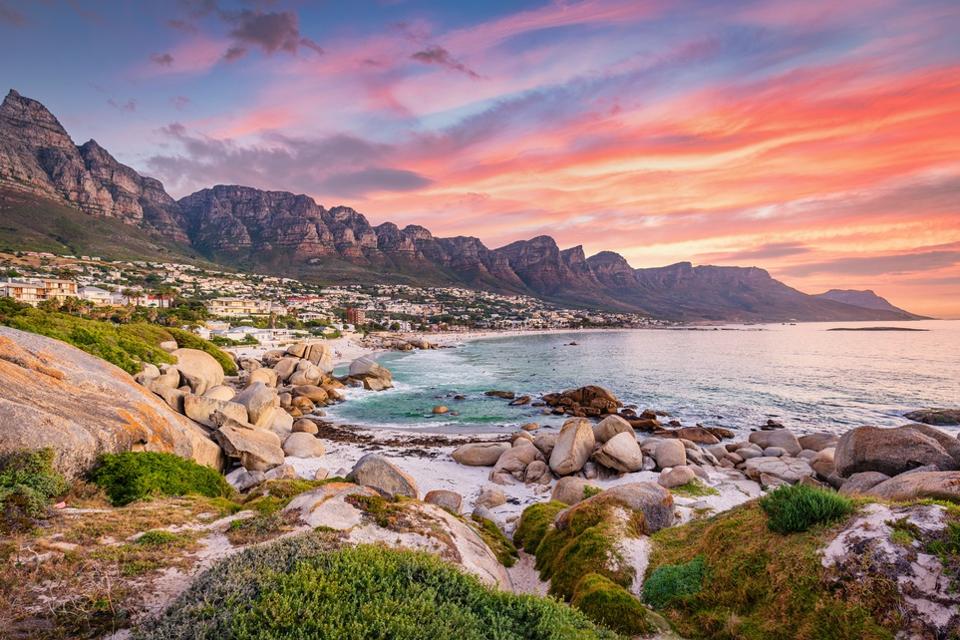Nestled between the dramatic slopes of Table Mountain and the shimmering waters of the Atlantic Ocean, Cape Town welcomes travelers with incomparable natural beauty and rich cultural complexity. As South Africa’s showcase city, this destination blends historic significance with modern creativity, where Robben Island’s sobering lessons coexist with vibrant food markets, township jazz clubs, and innovative design districts. The Cape Peninsula coastline flickers from cold-water surf breaks to charming penguin colonies, while nearby Winelands beckon with world-class vintages. Understanding Cape Town cultural etiquette and safety considerations transforms visits from ordinary to extraordinary, opening doors to genuine local connections while navigating the city’s social complexities. This comprehensive guide reveals what makes Cape Town tourism unique, from must-see attractions and adventure activities to practical advice about best times to visit Cape Town and essential safety precautions South Africa that every traveler should understand before arrival.
Understanding Cape Town’s Unique Geography
Natural Landmarks and Coastal Beauty
Table Mountain serves as both icon and compass, looming over the city bowl and creating a natural reference point for navigation. This UNESCO World Heritage Site dominates the landscape, with beaches scattered along both the Atlantic seaboard and False Bay offering diverse coastal experiences.
The Cape Peninsula extends southward, ending in dramatic cliffs surrounded by fynbos—a uniquely diverse shrubland found only in South Africa’s Cape region. This vegetation showcases fine-leaved plants, colorful proteas, and extraordinary biodiversity. For those asking what is fynbos Cape Town, it represents one of the world’s six floral kingdoms compressed into a relatively small area.
The Winelands rest within easy day-trip distance, offering Stellenbosch and Franschhoek wine tours that complement coastal attractions. This proximity to multiple ecosystems makes Cape Town outdoor activities remarkably diverse within compact geographic areas.
When to Visit Cape Town: Seasonal Considerations
Understanding Cape Town’s Mediterranean Climate
Cape Town follows Mediterranean weather patterns that significantly impact travel experiences. Summer (December to March) brings dry, sunny conditions ideal for beach activities and outdoor dining. However, the famous southeaster wind—locally called the “Cape Doctor”—can sandblast beaches and occasionally close the Table Mountain cableway.
Shoulder seasons in spring (September-November) and autumn (March-May) offer excellent conditions for hiking Table Mountain and exploring wine country. These periods answer questions about best time to visit Cape Town for most travelers, combining pleasant weather with fewer crowds.
Winter (June to August) features cool temperatures and Atlantic storms that fill reservoirs and test umbrellas. While less popular with tourists, winter offers dramatic seascapes and is ideal for whale watching Hermanus as Southern Right Whales visit the coast.
Must-See Cape Town Attractions
Iconic Landmarks and Cultural Sites
Table Mountain cableway or guided hikes provide access to the summit’s spectacular views. For those wondering how to visit Table Mountain, both options offer unique perspectives—the cableway provides ease and 360-degree rotating views, while hikes like Platteklip Gorge deliver rewarding physical challenges.
Robben Island tours give essential context to South Africa’s democratic journey and Nelson Mandela’s imprisonment. Advanced booking is crucial, as this UNESCO World Heritage Site limits daily visitors.
The District Six Museum explains forced removals under apartheid and why place and memory matter deeply to Capetonians. This moving experience helps visitors understand the city’s complex social history.
Zeitz Museum of Contemporary Art Africa anchors the V&A Waterfront with bold exhibitions showcasing African artists. The Norval Foundation displays sculpture within a fynbos garden, merging art with natural landscapes.
Kirstenbosch National Botanical Garden offers serene walks among indigenous plants, with summer concerts providing magical evening experiences. The garden demonstrates South Africa’s botanical diversity in curated, accessible settings.
Coastal and Peninsula Attractions
Chapman’s Peak Drive delivers cliffside views along one of the world’s most scenic coastal roads. Boulders Beach hosts African penguin colonies—one of few places globally where visitors can observe these endangered birds up close.
Bo-Kaap neighborhood features color-washed houses and deep Cape Malay heritage, though visitors should respect this residential area by asking permission before photographing people, especially elders.
Cape Town Culture and Cuisine
Culinary Experiences and Local Flavors
Cape Town cuisine represents a fusion of Cape Malay spices, braai culture (South African barbecue), and contemporary farm-to-table dining. Essential dishes include bobotie (spiced meat curry), Gatsby sandwiches (massive submarine-style sandwiches), snoek (local fish) prepared on the braai, and aromatic Cape Malay curries.
Restaurant tipping follows customary practices of 10-15 percent for good service. When invited to a braai—a cornerstone of South African social life—bring your own beverages and offer to contribute side dishes.
Creative Scene and Nightlife
Cape Town’s creative scene thrives in collaborative spaces. Live jazz venues in the City Bowl and Observatory neighborhoods showcase local talent. First Thursday gallery nights transform streets into open studios, creating accessible art experiences.
Nightlife ranges from rooftop lounges to live-music bars, with dress codes that are relaxed yet neat—beachwear stays at the beach.
Adventure Activities in Cape Town
Ocean-Based Adventures
Licensed tour operators provide diverse marine experiences. Shark cage diving operations run from Gansbaai and Simon’s Town, offering encounters with Great White sharks. Sea kayaking with dolphins and seals provides gentler marine interactions, while seasonal whale watching in False Bay and Hermanus showcases Southern Right Whales (June-November).
For those asking is shark diving safe Cape Town, choosing reputable, licensed operators with proper safety equipment and experienced crews minimizes risks.
Land-Based Adventures
Adventure activities include abseiling off Table Mountain with certified guides, tandem paragliding from Signal Hill or Lion’s Head, skydiving near the West Coast, and sandboarding dunes in Atlantis.
Hunting and fishing are regulated activities requiring permits—book with registered outfitters who follow conservation rules and verify credentials before committing.
Weather and Safety Considerations
Cape weather changes rapidly, winds can be fierce, and ocean temperatures remain cold on the Atlantic side year-round. Always follow guide briefings, respect closures, and never turn your back on surf—rogue waves pose real dangers along the coastline.
Cultural Etiquette and Social Norms
Language and Communication
South Africa recognizes 11 official languages. English, Afrikaans, and isiXhosa are widely spoken in Cape Town. South Africans value directness but also expect courtesy. Terms like “bru” (brother/friend) reflect the informal yet warm local communication style.
Be patient with service delays during power cuts (load shedding) and appreciate when staff “make a plan”—local phrase for creative problem-solving.
Dress and Public Behavior
Dress is casual yet tidy. Public displays of affection are common in tourist zones but exercise discretion in religious or conservative spaces. Treat religious sites and private homes with respect.
Essential Safety Information
Crime Awareness and Precautions
Cape Town requires street smarts despite its beauty. Violent crime occurs citywide with varying intensity by neighborhood. Essential safety tips for Cape Town include:
Avoid displaying wealth or expensive electronics Keep phones out of sight near traffic intersections Never walk alone at night in secluded areas Use registered taxi services or rideshares rather than unmarked vehicles
“Blue light” robberies—criminals posing as police—represent a known risk. If pulled over by an unmarked vehicle, slow down, activate hazards, and proceed to a well-lit station or 24-hour service area before stopping.
Hiking and Outdoor Safety
Hike Table Mountain in groups, start early, stay on marked trails, and consider hiring local guides. Mountain weather changes rapidly, and muggings have occurred on isolated paths. For those wondering is it safe to hike Table Mountain, group hiking with early starts significantly reduces risks.
Protests and labor strikes can occur and become disruptive. Avoid gatherings and check local news before driving through the city. While terrorism risk is assessed as low, remain aware of potential threats to Western interests.
Health Care and Emergency Preparedness
Medical Facilities and Insurance
Cape Town’s private hospitals meet high standards, though public facilities are stretched thin. Comprehensive travel medical insurance is essential. Know how to access emergency care and carry insurance documentation.
Vaccinations and Health Precautions
Routine vaccines should be current. Hepatitis A and typhoid are commonly recommended. Rabies pre-exposure vaccination may be considered for extended stays or remote adventures. Malaria is not a risk in Cape Town itself, though it exists in other South African regions.
Infrastructure Challenges
Power cuts (load shedding) can briefly affect clinics and pharmacies—refill prescriptions early and store medications safely. Heavy rain causes localized flooding and road closures, especially along low-lying routes and mountain passes. Check SANParks notices for trail closures and carry layers for rapid weather shifts.
Making the Most of Your Cape Town Visit
Cape Town rewards travelers who approach it with both enthusiasm and awareness. The city’s extraordinary natural setting—from Table Mountain’s summit to penguin colonies at Boulders Beach—creates unforgettable experiences. Understanding local customs, from braai etiquette to appropriate tipping practices, facilitates genuine connections with Capetonians.
The cultural complexity that includes Robben Island’s history, District Six’s painful legacy, and Bo-Kaap’s vibrant heritage provides essential context for comprehending modern South Africa. Meanwhile, world-class cuisine, adventure activities, and creative scenes ensure every type of traveler finds engaging experiences.
Safety awareness doesn’t mean avoiding Cape Town—it means traveling intelligently by using registered transportation, staying aware of surroundings, avoiding isolated areas after dark, and following local advice. Thousands of travelers visit annually and create wonderful memories by balancing adventure with appropriate precautions.
At The Inspiring Insight, we believe informed travelers create better experiences while respecting local communities and circumstances. Cape Town exemplifies destinations where cultural awareness, safety consciousness, and genuine curiosity combine to unlock extraordinary journeys. Whether you’re planning Table Mountain hikes, Winelands tours, shark cage diving adventures, or simply seeking to understand South Africa’s complex beauty, approaching the city with knowledge and respect ensures meaningful experiences. For more destination guides, cultural insights, and practical travel advice that helps you navigate the world’s most captivating places safely and authentically, explore our complete collection of resources designed to transform every journey into an enlightening adventure.



